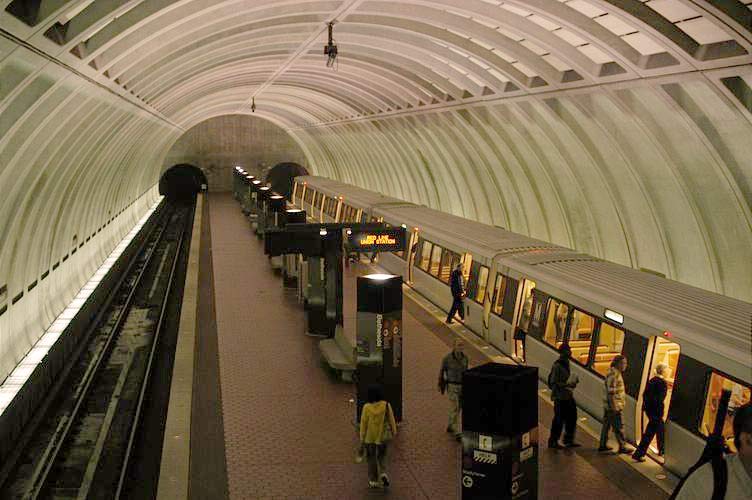Forget kiss and ride — welcome to roll and ride. Beginning Monday, passengers on the Washington Metro will finally be allowed to bring their bikes aboard during the morning and evening rush hours.
The policy change is the result of decades of advocacy by local bike advocates, dating back to a seminal protest at which cyclists carried cardboard bicycles aboard Metro trains to demonstrate that there was enough room, said Robert Gardner of the Washington Area Bicyclists Association.
Taking one's bike on the Metro means "you don’t necessarily have to rely on your car anymore," he said. "That’s a huge opportunity."
Metro, in its announcement, emphasized that the policy change was made with specifically with the benefits to reverse-commuters in mind. Metro had previously allowed bikes on board, but not between 7 and 10 a.m. and 4 and 7 p.m. New, more-spacious 7000 Series traincars and new funding for extended rush hour trains — with eight cars each — helped make the agency comfortable with the changes.
Metro also hopes the new policy will expand ridership at a time when it has been tumbling. About 0.8 percent of Metro riders currently bring their bikes on trains. The agency hopes to increase that to 2.1 percent.
New bike/train riders are expected to include commuters and recreational riders, and all the other cyclists in between, says Gardner. People who live or work within a mile of a Metro station are expected to be some of the biggest beneficiaries. The policy, he believes will also encourage new, less-confident bicyclists, who may be comfortable commuting a short distance by bike, but not 10 or 20 miles. Members of the bicycle group WABA also said they expected roll-on rush-hour service to be helpful when it rains, or for people who work for employers who don't have on-site showers.
Metrorail had long been resistant to allowing bicycles on board, citing concerns about crowding. But the system has been gradually expanding bike access since ending a complete ban in 1982.
WABA is encouraging bike riders not to crowd onto trains that are too crowded, or in a way that would impair users with special needs. And Metro will still have the right to refuse bikes from over-crowded traincars.
But Gardner said a lot of people's fears about crowded trains don't necessarily account for how diverse Metro users are and where they travel. "A lot of people use less-crowded lines, or commute from D.C. to Virginia in the morning. Those trains aren’t necessarily packed."
Other transit agencies — notably BART in the San Francisco Bay Area — allow bikes any time. But different transit agencies have different policies. Chicago's CTA, for example, allows bikes, but not at rush hour. In Boston, MBTA only allows two bikes per traincar. New York's subway system allows them (if you can find room).






